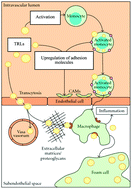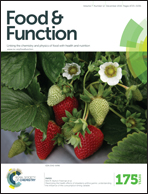Olive oil and postprandial hyperlipidemia: implications for atherosclerosis and metabolic syndrome
Abstract
Olive oil is the primary source of fat in the Mediterranean diet, which is associated with a significant improvement in health status, as measured by reduced mortality from several chronic diseases. The current pandemic of obesity, metabolic syndrome, and type 2 diabetes is intimately associated with an atherogenic dyslipidemic phenotype. The core components of the dyslipidemia of the metabolic syndrome, which most likely initiate atherosclerosis, are the “lipid triad” consisting of high plasma triglycerides, low levels of high-density lipoproteins, and a preponderance of small, dense low-density lipoproteins at fasting. However, postprandial (non-fasting) TGs (postprandial hyperlipidemia) are also recognized as an important component for atherosclerosis. Herein, the purpose of this review was to provide an update on the effects and mechanisms related to olive oil on postprandial hyperlipidemia and its implications for the onset and progression of atherosclerosis and metabolic syndrome.


 Please wait while we load your content...
Please wait while we load your content...